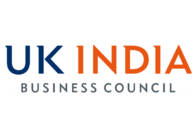Healthcare opportunities from the Union Budget
Indian Finance Minister Nirmala Sitharaman recently announced the budget for the 2020/21 fiscal year, which aims to boost spending by offering income tax cuts to the lower-middle class. The government is further hoping to develop the health, education and infrastructure sectors with additional incentives.
The Minister announced an outlay of INR 69,000 Cr (GBP 7.4bn), including INR 6400 Cr (GBP 700m) for Prime Minister Jan Arogya Yojana (PMJAY), or Ayushman Bharat, focusing on expanding the reach of PMJAY in Tier 2 and Tier 3 markets, towards healthcare. PMJAY is the world’s largest government-funded healthcare insurance scheme which will benefit over half a billion people. It aims to provide quality healthcare by drastically reducing healthcare expenditure which pushes 60 million Indians below the poverty line every year.
Although the budget allocation is nearly a 10 percent increase from last, it’s still only around 1.15 percent of GDP. Industry experts think this is not enough. India ranks 184th out of 191 in terms of GDP% spend on healthcare, as per the World Health Organisation. The average healthcare spend per person in India is amongst the lowest when compared to other countries. UK spend in 2017 was 9.6 percent of its GDP. Even countries like Sri Lanka, China, and Thailand invest three to four times more per capita on healthcare. As the Prime Minister has promised to double its public health spending to 2.5 percent of the GDP by 2025, a higher allocation was expected from this.
Prominence has been given to HealthTech with the Minister saying that “using machine learning and AI, in the Ayushman Bharat scheme, health authorities and the medical fraternity can target disease with an appropriately designed preventive regime”.
This is a huge area of opportunity for UK-India collaboration with the UK’s global reputation for innovative medical technology underpinned by the country’s AI leadership. However, the effective use of technology for the desired results will hugely depend on the much-awaited Personal Data Protection Bill (PDPB) which will need to balance privacy and data access supporting innovation. Our recent report Data: The Foundation of Intelligent Economies recommends a number of options.
The minister proposed to expand Jan Aushadhi Kendra Scheme to all districts offering 2000 medicines and 300 surgical instruments by 2024. The Jan Aushadhi Scheme is a campaign launched by the Government of India to provide quality medicines at affordable prices to the masses through special pharmacies known as Pradhan Mantri Bhartiya Jan Aushadhi Kendra. This, although good for local manufactures, may have a negative impact on the branded medicines and surgical instruments as these are more expensive than locally produced ones and may not make it on this list. Our report on Drug Pricing in India: Regulations to Foster Innovation, Accessibility and Affordability considers how price capping impacts innovation and access to quality healthcare.
The finance minister also proposed imposing a nominal health levy, by way of a duty of customs, on the imports of medical equipment. This is done with the view that these goods are now being made significantly in India. However, this move, we think, is going to make imported medical devices more expensive, hugely affecting international players. Considering medical and surgical equipment are one of the top ten products imported from UK to India this will surely impact UK companies in the sector.
There is also an allocation of INR 3,000 crore (£350m) for skill development sector to help develop skills of Indian healthcare practitioners which is an absolute necessity.
We, at the UKIBC, welcome the budget particularly the emphasis given to HealthTech. This is an area that we are working on highlighting capabilities of the UK and India within the sector and how the two countries can further collaborate for mutual benefits. While there is scope for collaboration, the increased tariffs on medical devices could deter UK businesses from bringing their innovations to India. We would therefore urge the GoI to find a way to encourage the best global innovations into India to ensure that the best medical treatment is available to the masses.

 By Meghna Misra-Elder
By Meghna Misra-Elder 





